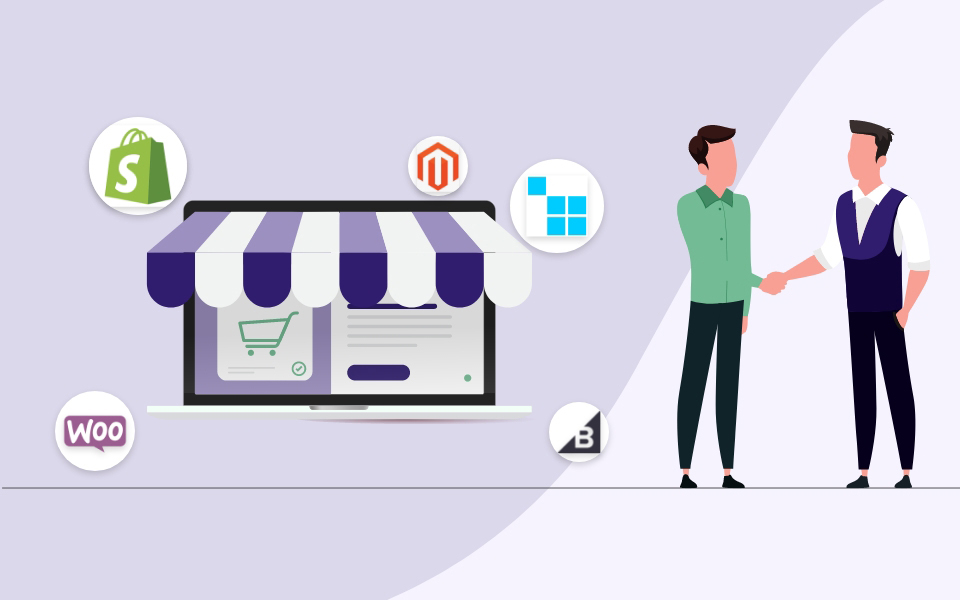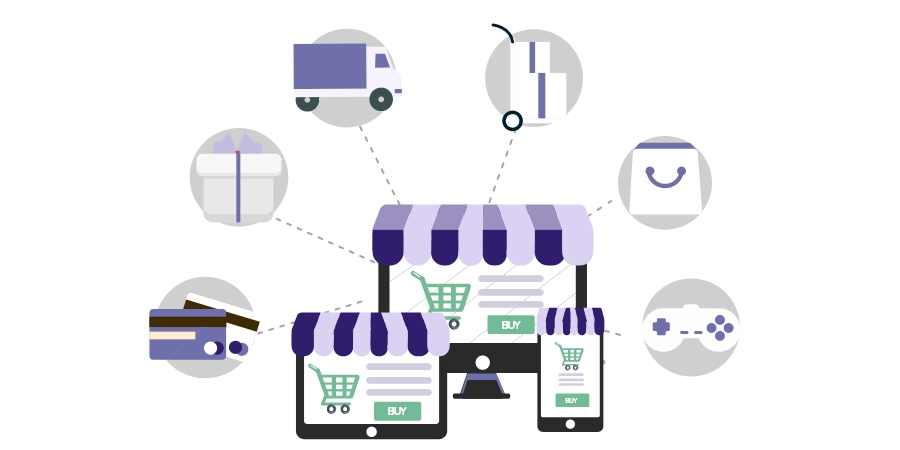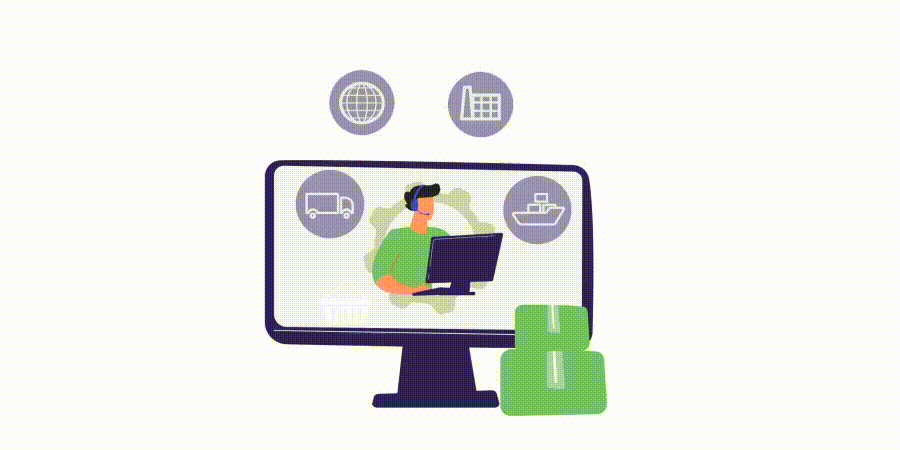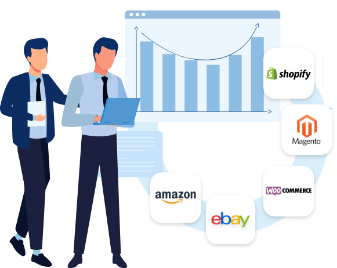Subscribe to Our Newsletter
Stay updated with the latest tips and strategies. Get additional discounts and alerts on offers.

Through the years, we have seen ecommerce revolutionize the way businesses are being carried on across the world. The main reasons for the sudden boom of ecommerce was the rise of internet and smartphone penetration. B2B ecommerce has also started to grow rapidly because of automation, targeted marketing, and more intuitive customer journeys.
B2B ecommerce is now going above and Keep reading to find out how you can revolutionize your B2B business with ecommerce platforms. Keep reading to find out how you can revolutionize your B2B business with ecommerce platforms.
B2B ecommerce is a platform where you can sell products and services with businesses via online transactions between businesses. It is the most efficient way to buy or sell products for wholesalers, manufacturers, distributors, and other types of B2B sellers. B2B ecommerce platforms continue to emerge with the growth of advanced technology, ecommerce advances, and profitable models.
B2B companies can use curated B2B E-commerce platforms to showcase all the essential information, images, descriptions, pricing, and promotions to build connections with their clients. B2B clients can now make more rational, carefully calculated, and intelligent decisions on whether or not to purchase the product because they will have access to data through ecommerce platforms.

It is known that B2B companies make up the other half of the global economy. But not many people know that based on Statista’s B2B ecommerce Report published in 2021, the B2B ecommerce market was valued at $14.9 trillion in 2020, five times more than the B2C market. The same report also mentioned that an estimated 17% of B2B sales are expected to be generated digitally by 2023, this shows the potential of B2B ecommerce platforms.
While the future of the ecommerce marketplace is moving towards creating competitive designs, fluid interfaces, Artificial intelligence, Virtual reality, and Augmented reality, among others. Many millennials are now entering the B2B space, while the buyer’s expectations are also increasing rapidly. B2B companies are using ecommerce platforms to stay up to speed. Needless to say, B2B ecommerce is reaching new heights.
Here are a few ways ecommerce promotes the B2B industry:
B2B is now using ecommerce platforms mainly because it saves time and is highly cost-efficient. Not only does it reduce operating costs resulting in greater efficiency, but it also helps them to grow their business.

Most people think that ecommerce is only used for reaching out to new clients, but that is wrong as you can quickly implement an automated cross-selling and up-selling program. You can even get access to finding products clients are looking for and use it to reach out to them with personalized offers, discounts, and deals.
Checking sales analytics is one of the most critical steps in marketing anything because it is the only way you get insights into how your products or services performed, how many sold, impressions, clicks, etc. You can also optimize the user experience and make better marketing decisions. Analytics is beneficial for creating marketing campaigns and improving the overall shopping experience.

Over 65% of B2B buyers prefer purchasing B2B products and services on online platforms rather than from salespeople. It is known that at least a quarter of B2B buyers complete 50% of their purchases online. These facts highlight the importance of implementing an ecommerce channel for B2B companies.
A client’s ecommerce experience is usually focused on visual and interactive elements, but there is much more you can create to drive their attention. If you want to provide value you can increase the site performance, faceted search, social media integrations, detailed product information, and adding an efficient purchasing funnel.
You can also use customer segmentation to provide them with curated product catalogs, personalized price lists and introduce incentive programs. If your company implements all of this, it is a win-win situation for the business and clients.
To revolutionize the B2B ecommerce industry, a bundle of strategies needs to be implemented. The above-given strategies are just a gist of transforming the b2b ecommerce industry. A solid game plan and more strategies would be required to build the digital future for the success of the B2B ecommerce industry.
Now let’s get into the ecommerce B2B examples!

Shopify is one of the best website builders and ecommerce platform, as it powers millions of businesses worldwide. This ecommerce store is an all-in-one cloud-based platform that helps people run, manage and grow their business while letting you manage orders, products, staff, and customers at the tip of your fingers. Shopify’s online store allows you to forecast and has a built-in feature that can power your B2B business in the right direction.
Some top companies that use Shopify or successful Shopify stores are Kraft Heinz Co, Whole Foods Market, Red Bull GmbH, Penguin Books, Fitbit, Kylie cosmetics, etc. If you want to get in touch with some of the top companies using Shopify and showcase your products, then our Shopify Store Owners Database will help you connect immediately.

The best websites using Magento in 2022 are Sigma beauty, Ford, Liverpool, Landrover, Nestle Nespresso, Monin, etc. Since Magento caters to B2C and B2B industries, reaching out to their B2B client in your niche can be difficult. Take a look at our Magento User List and connect to the list of companies using Magento.

Ecommerce sites built with WooCommerce are Porter and York, Barefoot Buttons, The Good Batch, Root Science, etc. But if you are looking for companies using WooCommerce and its market share, we will help you reach out to their top users through our List of Companies that use WooCommerce.



The Covid 19 pandemic has pushed B2B industry to get into the ecommerce industry to sell their products online quickly and cost-effectively. Ecommerce is truly game-changing for B2B industry because it has helped numerous companies get into new markets, increase their revenue and ROI, reach out to their target audience, automate business processes, and improve sales.

Ecommerce has helped numerous B2B companies in shifting their business online. Ecommerce platforms have given the B2B community access to new markets, increased conversions, improved customer satisfaction, and centralized data, among others. But some of the main ways it promotes ecommerce are
Show Some Love!

Subscribe to Our Newsletter
Stay updated with the latest tips and strategies. Get additional discounts and alerts on offers.
Related Articles
Subscribe to Newsletter
Stay up to date with the latest marketing, sales, and service tips and news.
